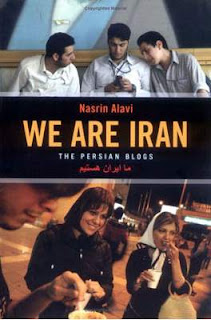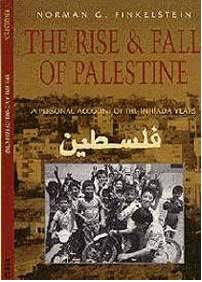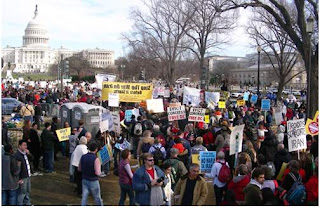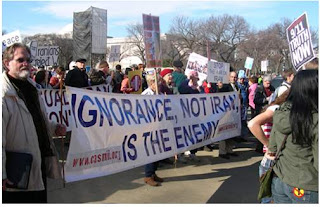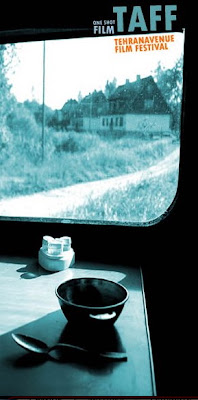Guardian reported
on January 22 2007 that Mr Ahmadinejad's authority has come under pressure from critical MPs and an increasingly concerned Mr Khamenei.
A week later
(January 24, 2007) it reports of re-emergence of Mr Rafsanjani, contradicting widely-held assumptions that his influence had diminished following his presidential defeat. Rafsanjani's increasing prominence follows last month's electoral triumph in topping the poll in elections to the experts' assembly, an important clerical body.
"Iran's beleaguered president, Mahmoud Ahmadinejad, is facing a powerful challenge from his fiercest political rival for control of the country's nuclear and economic policies."
Hashemi Rafsanjani, a pragmatic conservative who was defeated by Mr Ahmadinejad in the 2005 presidential election, is trying to persuade the country's supreme leader, Ayatollah Ali Khamenei - who has the final say in all state matters - that further negotiations are essential to avoid a potentially disastrous conflict with the US or Israel.
Mr Rafsanjani demonstrated his growing influence over the nuclear issue in a meeting today with Britain's ambassador to Tehran, Geoffrey Adams. He told Mr Adams that Iran was willing to submit to "any verifying measures by the responsible authorities" to prove the peaceful nature of its nuclear programme, which many in the west suspect is aimed at developing an atomic bomb.
Mr Rafsanjani's conciliatory stance contrasts starkly with Mr Ahmadinejad's defiant opposition to the suspension of uranium enrichment. It is understood that Rafsanjani has formed a committee overseeing the nuclear negotiations. The committee will assess whether the country's international standing has been damaged by Mr Ahmadinejad's radical statements.
According to Mohammad Atrianfar, a respected political commentator and associate of Mr Rafsanjani, "Before the sanctions, Rafsanjani hoped Iran could obtain its enrichment objectives through mutual understanding with the west. But now he thinks we have reached a dangerous point and that a step should be taken backwards in the hope that two forward can be taken later." Rafsanjani, according to Atrianfar, doesn't see negotiation as a sign of weakness; but he wants to limit the impact of the sanctions and get Mr Khamenei and the government to accept that if Iran faces mounting sanctions or a military attack or any crisis which damages the economic life of the people.
Mr Rafsanjani also criticised Mr Ahmadinejad's government this week for failing to privatise state enterprises, a policy agreed under Iran's constitution and supported by Mr Khamenei. He said Iran's economy would be overtaken by poorer neighbouring countries if prized national assets remained under state control. Mr Ahmadinejad - who has vowed to spread wealth more evenly and alleviate poverty - favours a bigger government role in the economy.
Mr Rafsanjani's comments added to a chorus of anger over Mr Ahmadinejad's economic policies, which have been widely denounced for stoking inflation and failing to cure unemployment. Dismay over rising prices has driven supposedly like-minded MPs in the fundamentalist-dominated parliament to launch a petition summoning the president to answer questions. It has so far gathered 63 signatures and needs only a further nine to be effective. Meanwhile, proceedings are underway to impeach four of his ministers accused of incompetence.
"Even though the majority of MPs are fundamentalists like Ahamdinejad, the level of dissatisfaction is much higher than previous governments faced from parliament," Akbar A'alami, a reformist MP told the Guardian. "The criticisms go beyond political groupings. I think it has reached a critical level."
Presenting next year's budget, an unrepentant Mr Ahmadinejad told MPs on Sunday that he had controlled inflation and said it was running at 12%. Independent estimates put it at 30%. Critics say rising food and housing costs are hurting the poor, whom Mr Ahmadinejad had pledged to help.
Insiders say anger towards the president is sufficient for a majority of MPs to want to impeach him and remove him from office. However, Mr Khamenei is reluctant to sanction such a step, out of concern for the trauma it could inflict on the system rather than personal loyalty to the president.
Yet if the economy continues to deteriorate, Mr Ahmadinejad's position could become vulnerable, some analysts think. "The supreme leader is absolutely sensitive to the rate of inflation," said Saeed Leylaz, an economic analyst. "He has issued one public criticism, three months ago when inflation was lower than it is now. If it is even higher three months from now, then surely Mr Khamenei will not remain silent."
According to Guardian on
Jan. 28 "A petition is being circulated to summon Ahmadinejad for questioning over his economic and nuclear policies, while impeachment proceedings are under way against four ministers.
Emad Afrough, a fundamentalist MP, said parliament would start dictating to Ahmadinejad unless he learnt the art of consultation. 'The political situation is going to force the government to consult more. If not, some issues be dictated to them,' he said. 'The government cannot count on the fundamentalists like before.'
A reformist MP, Akbar Aalami, said disenchantment had reached unprecedented levels. 'This government lacks the maturity to fulfil its legal duties and exercise authority,' he said."
